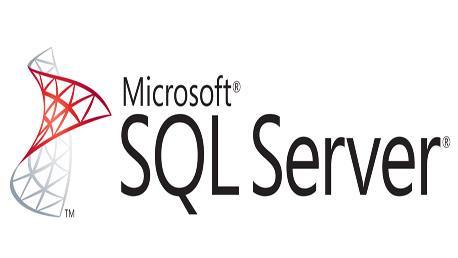Curso MCSA Microsoft SQL Server 2016 Administración


Si has realizado este curso, ¿por qué no darnos tu opinión?. Si lo haces, estarás ayudando a miles de personas que, como tu en su momento, están intentando cambiar su vida a través de la formación. No hay mejor ayuda, para decidirse entre miles de cursos, que la opinión de una persona que ha vivido la experiencia de cursarlo, miles de personas te lo agradecerán.
Danos tu opinión detallada sobre el Curso MCSA Microsoft SQL Server 2016 Administración. No olvides decirnos que te pareció el temario del curso, el profesorado, la accesibilidad al equipo del centro para resolver tus dudas y, en el caso de los programas online, la calidad del campus virtual.
El Curso MCSA Microsoft SQL Server 2016 Administración se puede cursar ONLINE POR VIDEOCONFERENCIA O PRESENCIAL EN MADRID.
Metodología
Tú eliges: Presencial o Videoconferencia
Puedes elegir la modalidad presencial tradicional o por videoconferencia donde el curso se imparte en vivo, en directo y de manera totalmente interactiva con nuestra plataforma Online Live (propiedad New Horizons utilizada en todos los centros New Horizons del mundo). Es igual que la formación presencial solo que cada uno está cómodamente desde su casa o desde su puesto de trabajo. Todas las cases quedan grabadas durante 6 meses así que tienes acceso a tu propio curso y si te pierdes alguna clase, la puedes ver cuando quieras (incluso el curso completo) durante 6 meses. Tienes las ventajas de la formación presencial + las ventajas de la formación OnLine. También tienes durante esos mismos 6 meses un soporte posterior a la formación por si te surgiera alguna duda así como la posibilidad de volver a repetir el curso sin coste alguno en convocatorias posteriores.
-Profesionales que quieran aspirar a un puesto de especialista en infraestructura o administrador de bases de datos.
-Profesionales que necesiten ampliar sus conocimientos en la administración de BBDD SQL Server.
Objetivos Didácticos: Acreditar los conocimientos y habilidades necesarias para la instalación, configuración y mantenimiento de una base de datos SQL Server.
20764 Administering a SQL Database Infrastructure
1 - Authenticating and Authorizing Users
Authenticating connections to SQL Server
Authorizing logins to access databases
Authorization across servers Partially contained databases
Lab: Authenticating Users
2 - Assigning Servers & Database Roles
Working with server roles
Working with Fixed database roles
Creating user-defined database roles
Lab: Assigning server and database roles
3 - Authorizing Users to Access Resources
Authorizing user access to objects
Authorizing users to execute code
Configuring permissions at the schema level
Lab: Authorizing users to access resources
4 - Protecting Data with Encryption & Auditing
Options for auditing data access in SQL Server
Implementing SQL Server audit
Managing SQL Server audit
Protecting data with encryption
Lab: Using Auditing and Encryption
5 - SQL Server Recovery Models
Backup strategies
Understanding SQL Server transaction login
Planning a SQL Server backup strategy
Lab: Understanding SQL Server recovery models
6 - Backup of SQL Server Databases
Backing up databases and transaction logs
Managing database backups
Working with backup options
Lab: Backing up SQL Server databases
7 - Restoring SQL Server Databases
Understanding the restore process
Restoring databases
Working with point-in-time recovery
Restoring system databases and individual files
Lab: Restoring SQL Server User Databases
8 - Automating SQL Server Management
Automating SQL Server management
Working with SQL Server agent
Managing SQL Server agent jobs
Multi-server management
Lab: Automating SQL Server Management
9 - Configuring Security for SQL Server Agent
Understanding SQL Server Agent Security
Configuring credentials
Configuring proxy accounts
Lab: Configuring Security for SQL Server Agent
10 - Monitoring SQL Server with Alerts & Notifications
Configuration of database mail
Monitoring SQL Server errors
Configuring operators, alerts, and notifications
Alerts in Azure SQL database
Lab: Monitoring SQL Server with Alerts and Notifications
11 - Introduction to Managing SQL Server by Using PowerShell
Configure SQL Server using PowerShell
Administer SQL Server using PowerShell
Maintain the SQL Server environment using PowerShell
Managing Azure SQL Server databases using PowerShell
Lab: Administering SQL Server using PowerShell
12 - Tracing Access to SQL Server
Capturing activity using SQL Server profiler
Improving performance with the database engine tuning advisor
Working with tracing options
Distributed replay Monitoring locks
Lab: Tracing Access to SQL Server
13 - Monitoring SQL Server
Monitoring activity
Capturing and managing performance data
Analyzing collected performance data
SQL Server utility
Lab: Monitoring SQL Server
14 - Troubleshooting SQL Server
SQL Server troubleshooting methodology
Resolving service related issues
Resolving login and connectivity issues
Troubleshooting common issues
Lab: Troubleshooting Common Issues
15 - Importing & Exporting Data
Transferring data to/from SQL Server
Importing and exporting table data
Using BCP and BULK INSERT to import data
Deploying and upgrading data-tier applications
Lab: Importing and Exporting Data
20765 Provisioning SQL Databases
1 - SQL Server Components
Introduction to the SQL Server Platform
Overview of SQL Server Architecture
SQL Server Services and Configuration Options
2 - Installing SQL Server 2016
Considerations for installing SQL Server
TempDB Files Installing SQL Server 2016
Automating Installation
Lab: Installing SQL Server
3 - Upgrading SQL Server to SQL Server 2017
Upgrade Requirements
Upgrade SQL Server Services Side by
Side Upgrade: Migrating SQL Server Data and Applications
Lab: Upgrading SQL Server
4 - Working with Databases
Introduction to Data Storage with SQL Server
Managing Storage for System Databases
Managing Storage for User Databases
Moving and Copying Database Files
Buffer Pool Extension
Lab: Managing Database Storage
5 - Performing Database Maintenance
Ensuring Database Integrity
Maintaining Indexes
Automating Routine Database Maintenance
Lab: Performing Database Maintenance
6 - Database Storage Options
SQL Server storage Performance
SMB Fileshare
SQL Server Storage in Azure
Stretch Databases
Lab: Implementing Stretch Database
7 - Planning to Deploy SQL Server on Microsoft Azure
SQL Server Virtual Machines in Azure
Azure Storage
Azure SQL Authentication
Deploying an Azure SQL Database
Lab: Plan and Deploy an Azure SQL Database
8 - Migrating Databases to Azure SQL Database
Database Migration Testing Tools
Database Migration Compatibility Issues
Migrating a SQL Server Database to Azure SQL Database
Lab: Migrating SQL Server Databases to Azure
9 - Deploying SQL Server on a Microsoft Azure Virtual Machine
Deploying SQL Server on an Azure VM T
he Deploy Database to a Microsoft Azure VM Wizard
Lab: Deploying SQL Server on an Azure Virtual Machine
10 - Managing databases in the Cloud
Managing Azure SQL Database Security
Configure Azure storage
Azure Automation
Lab: Managing Databases in the Cloud
56 Horas

